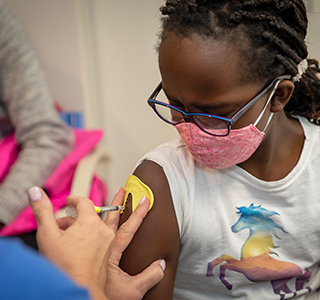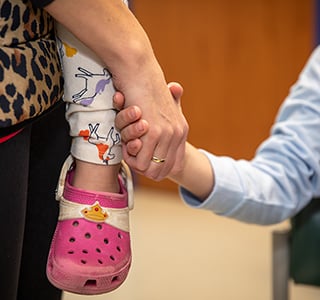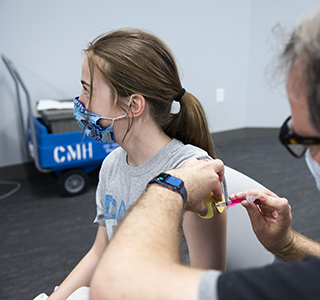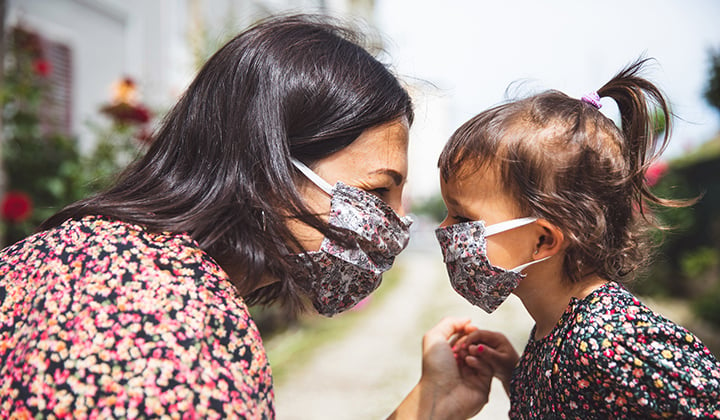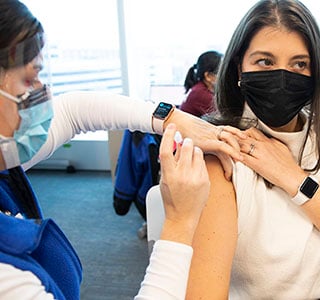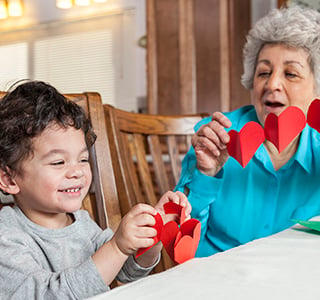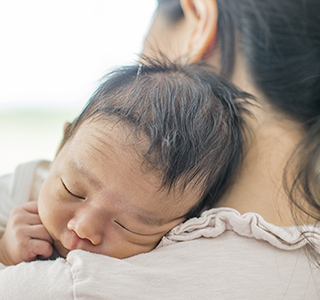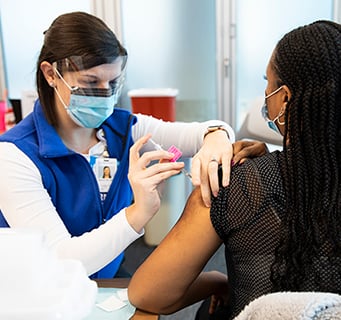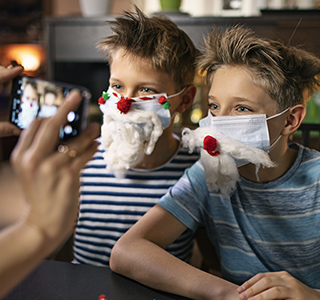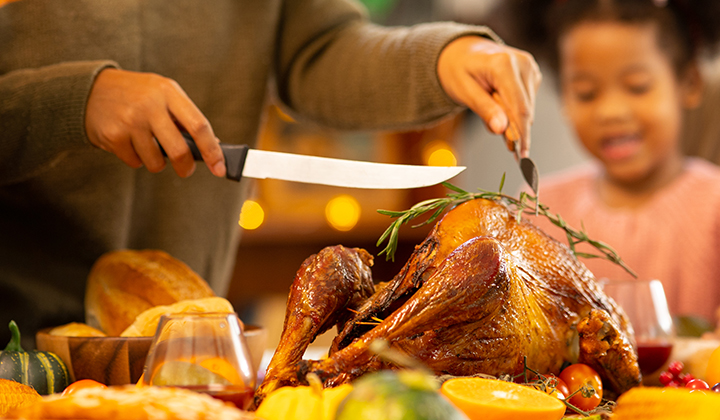It's not perfect. It's parenting.
Sometimes you need answers to the little everyday things that parents encounter. And sometimes, you just need someone to encourage you through all of the craziness and challenges of parenthood. Welcome to Parent-ish, a blog from the experts at Children's Mercy.

Get updates
Have a parenting hack to share? Or a topic you'd like to see?
Category: COVID-19
Ways to comfort children for vaccine appointments
If you’ve ever wished for a way to help your child not feel pain, you’re not alone. We’ve all had vaccines or drawn blood and know it does come with some discomfort. The Child Life team at Children’s Mercy works every day to comfort children before needle procedures like routine vaccines or blood work and they’re sharing ways parents can help prepare kids—and even help kids cope with pain.
Parents biggest concerns with the COVID-19 vaccine, addressed
We know parents want to make the best decisions when it comes to their children. We, as parents, often fear making the wrong decision. Getting vaccinated against COVID-19 is not one of those wrong decisions. There has been so much disinformation floating around which has understandably caused parents to have questions and concerns with the COVID-19 vaccine. We want to address some of the biggest concerns and rumors for you now.
La vacuna contra el COVID-19 pendiente para niños
Acabamos de recibir la autorización para que los niños de 5 a 11 años reciban la vacuna COVID-19. Sabemos que probablemente tenga preguntas sobre la vacunación de su hijo. Hemos proporcionado respuestas a algunas de las preguntas que nos han hecho con más frecuencia. Vacunar a los niños ayuda a proteger a todos. Cuantas más personas se vacunen, menor es la transmisión de COVID-19 en nuestra comunidad.
Answering your questions about the COVID-19 vaccine for kids
We just received authorization for children ages 5-11 years old to get the COVID-19 vaccine. We know you probably have questions about your child getting the vaccine. We’ve provided answers to some of the questions we’ve most frequently been asked. Getting kids vaccinated helps protect everyone. The more people vaccinated, the less transmission of COVID-19 in our community.
Yes, it’s tough right now: tips for parents and COVID-19 regulations
It’s a tough time to be a parent right now. COVID-19 is still in our communities, but it feels like most people are “back to normal.” Except when you have kids. Children under 5 aren’t protected by the COVID-19 vaccine and many parents are struggling to figure out how to keep kids safe while not keeping them isolated from the world. Here are some tips to help you think through your decisions.
Top questions about the COVID-19 vaccine from teens
Kids 12 years old and older have been approved to get the COVID-19 vaccine. Many people have questions, and that includes teens. Here are a few of the top questions area teens wanted to know about the vaccine with answers from Pediatric Infectious Diseases physician, Barbara Pahud, MD, MPH.
Vacuna contra COVID-19: 6 datos que necesita saber
Hay mucha información circulando sobre las vacunas contra COVID-19 y es importante que las personas estén informadas. Pero con tanta información disponible, también hay información errónea. Es por eso que recurrimos a nuestros expertos médicos para aclarar las cosas. A continuación, se incluyen seis datos que necesita saber sobre las vacunas contra COVID-19.
Ways to celebrate Valentine’s Day during COVID-19
In school and at home, Valentine’s Day is typically a fun day to trade friendship notes, messages of love and eat yummy treats. During the coronavirus pandemic, it still can be fun with a few slight differences to stay safe.
How new parents can avoid social isolation during the COVID-19 pandemic
Bringing home a new baby can be stressful for parents at any time, but COVID-19 has added a new layer of complication. But, with a little creativity, parents can still stay connected to their “village,” to each other and to themselves.
COVID-19 vaccine: 6 facts you need to know
There is a lot of information circulating about COVID-19 vaccines and it is important for people to be educated. Here are six facts you need to know about the COVID-19 vaccines.
How to talk about holiday gatherings this year
The holiday season is here and, this year, holiday stress has a whole new meaning. Decisions about whether and how to gather together are on everyone’s minds. We all want our loved ones to be safe and we all want to enjoy the holidays at the end of a difficult year.
7 ideas to host a rocking virtual holiday party
Many families are choosing to not have extended family and friends over for the holidays this year because of COVID-19. But, that doesn’t mean the holidays can’t be fun. Here are a few ideas to get that holiday party popping – virtually!
Returning to play: indoor sports
As our climate seasons change, so do our sport seasons. With the onset of cooler temperatures, indoor sports are starting to gear up. Typically, this transition is not much of an issue, but as we know 2020 has not been the standard by any means.
Tips for celebrating the holidays safely during COVID-19
The holidays are generally a time for people to reconnect with family and friends, but it is important to remember you can spread illnesses, like the virus that causes COVID-19, even when you feel healthy. Here are some suggestions for helping to make your holiday plans safe for everyone.
Parenting in a pandemic: tips for managing stress and balance
Family stress is at an all-time high - school schedules are modified, parents have altered work situations, childcare options are limited, and time outside of the home is decreased. For others, caregivers are out of work, family members may be ill, and more.

